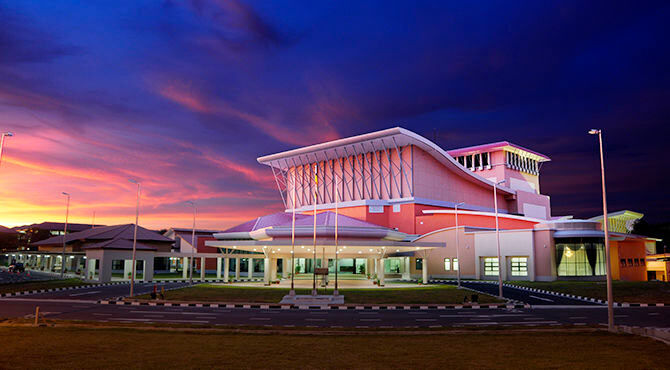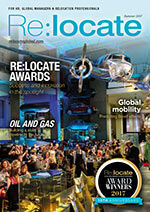International education: the inside track
Spring’s international education conferences were full of insights into current education and schooling issues that will be invaluable to HR, relocation professionals and relocating families.

Jerudong International School
Leadership in a time of transformation – watch our series of videos
Robert Senior argued that, in the current climate, inspirational leadership was desperately needed to bring about transformational change in business and education.Having himself attended two international schools, the British School in the Netherlands and Sevenoaks School, in Kent, he believed they prepared him well for life in today’s world. A large part of this, he explained, was that international schools challenged the rules and widened horizons; learning with children from a variety of countries encouraged pupils to accept differences more freely.Experiencing the transient nature of an international school’s population and the mix of many different cultures and languages is enormously beneficial to young people in a fast-change world.Mr Senior urged his audience to be innovative, using a quote from Marc Pritchard, Procter & Gamble’s chief brand officer: “If we don’t transform our business, we’ll all be Ubered.”Explaining his thoughts on fundamental change, Robert Senior said that revolution started with language, and he argued that a mission statement needed to go beyond the ‘what’ to an aspirational level. Educationalists had a wonderful leadership opportunity to aim high and to encourage their pupils to maximise their potential, he added. View our video interview with Robert Senior.Colin Bell, CEO of COBIS, continued the theme, urging educators to share a commitment to transforming children’s lives. “The fast-paced, unpredictable and ever-changing world that we live in,” he said, “requires educators to share a determination and commitment to transform the lives of children and young people worldwide, regardless of their ability or personal circumstances.”Mr Bell also highlighted the new COBIS Patron’s Accreditation and Compliance scheme, a school improvement and external validation system launched on 1 April as part of a rigorous assessment of quality for international British schools worldwide. This should prove extremely valuable to relocating parents selecting appropriate schools, and for the employers and relocation professionals supporting their moves. View our video interview with Colin Bell.Into the future
Mark Steed, director of Jumeirah English Speaking School (JESS), in Dubai, highlighted the growing problem of supply and demand of schooling worldwide. He explained that 263 million children were not in school and there was a desperate global shortage of teachers, highlighting the alarming statistic that 28 per cent of physics lessons in the UK were not taught by a qualified physics teacher.Mr Steed looked to the future of international education, believing that for-profit education would become the pattern – education being offered at three price points (premium, mid-range and budget) according to preferences such as class size, facilities, and teachers’ qualifications.He predicted that being taught by a specialist teacher in a classroom would become a luxury, with budget education being taught entirely online, and that virtual technology headsets could enable students to experience a classroom lesson through video conferencing. Robots would increasingly be used as teaching assistants. View our video interview with Mark Steed.
Videos: Headteacher Insights series
More to follow
International education in APAC
At the International and Private Schools Education Forum’s (IPSEF) Asia conference, held in Kuala Lumpur in March, educationalists and investors gathered to explore development prospects, best practice, and the challenges of supporting students, teachers and local economic policy in the fast-growing East and Southeast Asia region.IPSEF co-founder Rhona Greenhill, citing data from the latest ISC Research report, said that the number of international schools in East Asia had grown from 828 in 2013 to 1,125 this year, an increase of 32 per cent. Over the same period, Southeast Asia had recorded 39 per cent growth in international schools, from 725 to 1,008.“We see a lot of growth potential in this part of the world for private and international schools, mainly as a result of the continued growth of the economies in East and Southeast Asia,” Ms Greenhill added.From the figures, it’s clear that Southeast Asia dominates the list of countries with the highest number of premium English-medium international schools in the greater East Asia region. But what does this mean for employers and relocating families? The sheer volume of schools can be bemusing, and even misleading.Most of these schools are catering for the local population, often the rising middle class with strong aspirations for education as a passport to the best universities and career prospects for their children. Only a small percentage cater for the expatriate population.Schools typically have a 70–80 per cent local intake. However, it is the standard of the school and the quality of the education that are most important. Employers and parents should be guided by factors such as accreditations and membership of bodies like COBIS and the Council of International Schools (COIS). They should also check out safety policies and compliance.Curriculum will obviously be a guiding factor, from the International Baccalaureate (IB) to International GCSE (IGCSE), and from A Level to the American, French and German systems. This is largely a matter of parental choice.
Focus on Malaysia
I took up the offer of a day tour, run by the IPSE conference, of three exceptional schools in Malaysia. The fabric of these schools, all recently opened, was superb, as were their facilities.The emphasis on science and technology was notable, but drama and music facilities, art studios and libraries also abounded, in support of a truly holistic education.St Joseph’s, a Catholic school in Kuala Lumpur, is modelled on Singapore’s famous school of the same name. Beautiful classrooms, and buildings set amongst the lush greenery, exuded an air of calm, happy learning, from pre-school to seniors.The headteachers of both the junior and senior schools were keen to emphasise the research-based decision-making that had influenced every detail, from the fabric of the school to the learning approach and curriculum.There is also a keen interest in sport. Where there is lack of space, outdoor facilities shared with neighbouring colleges – from artificial-grass pitches to basketball courts and swimming pools – are a good solution for many city schools, with no compromise on quality. However, to the uninitiated, seeing an enclosed basketball or tennis court on a school rooftop can be a surprise.At a school like Epsom College, there is no problem of space. The enormous campus of this prestigious boarding school in Bandar Enstek, south of Kuala Lumpur, has every facility for sport, drama and the creative arts, as well as technology and digital workshops that cater for the young entrepreneurs and business leaders of the future.It is fairly typical that these new schools have facilities to grow into as their student rolls increase.Fuelling global ambitions
I had the privilege of joining sixth-formers at the British International School Kuala Lumpur for lunch. Razor-sharp, enquiring minds were keen to hear about the latest news impacting the UK, Europe and the US, and to discuss books and films.Students switched topics confidently, and were equally at ease talking about everything from economic theory, environmental issues, and the latest tech gadgets, to career and university options, holiday trips to Australia, and school treks and fundraisers.There is no doubt that the quality of the education and school facilities on offer underscores the region’s desire to match, and even exceed, the best in the world. There is still the ambition for many to achieve the top prize of a place at an elite university in the US, the UK or Europe, but things are changing fast.There is a pipeline of highly educated and driven young people coming through these new international schools, who will go to university or college and take up roles in their local region or further afield as part of the new global talent pool.For international employers, there is a huge opportunity to foster relationships with schools in the Asia region. For expatriate families, it is a question of checking the credentials of the schools on offer, exploring the quality and style of education, the often-exceptional facilities, and the energy and ambitions of the region, and then embracing the opportunities that lie ahead for your child – and, indeed, the whole family.Of course, it is individual parents who know their children best, but HR global mobility teams and their supporting relocation professionals can do a lot to encourage them to look below the surface and read between the lines in making their school choices. See Relocate’s 2017 Guide to International Education & Schools and Guide to Education & Schools in the UK for practical advice.If you, as an employer, would like to engage with inspiring schools like these to support the talent pipeline of the future, email fiona@relocatemagazine.com. Find out more by reading about our evening of innovation at the Science Museum. Watch the video highlights of the Gala Dinner and Awards presentation here.
For more insights from international headteachers, watch our series of videos from the COBIS Annual Conference.
See further coverage, with videos, in our special education newsletter. Asia education guide available autumn 2017.
Read more about current issues facing global mobility professionals in the Summer issue of our magazineFor related news and features, visit our Education & Schools section.
Get access to our free Global Mobility Toolkit





































